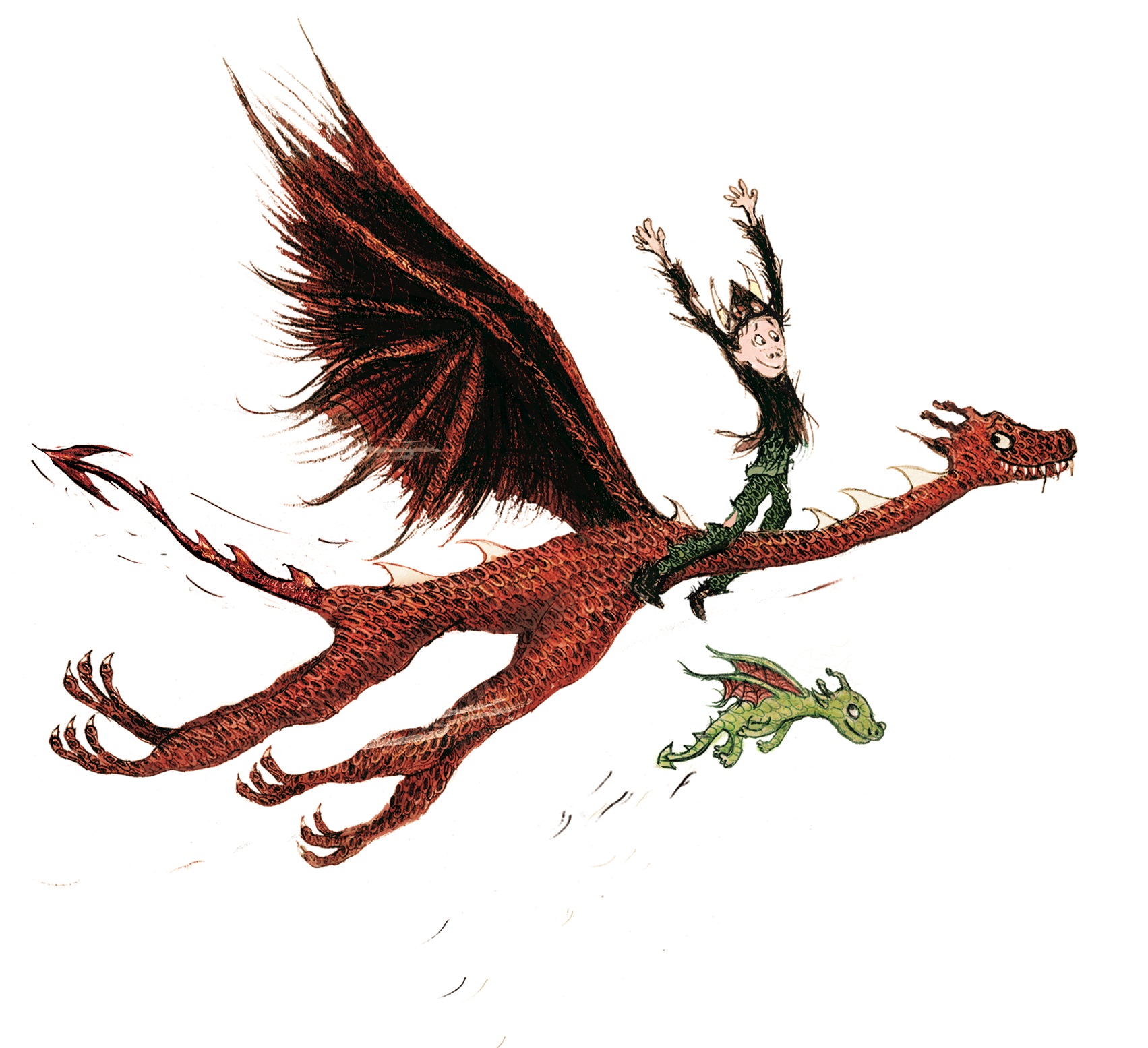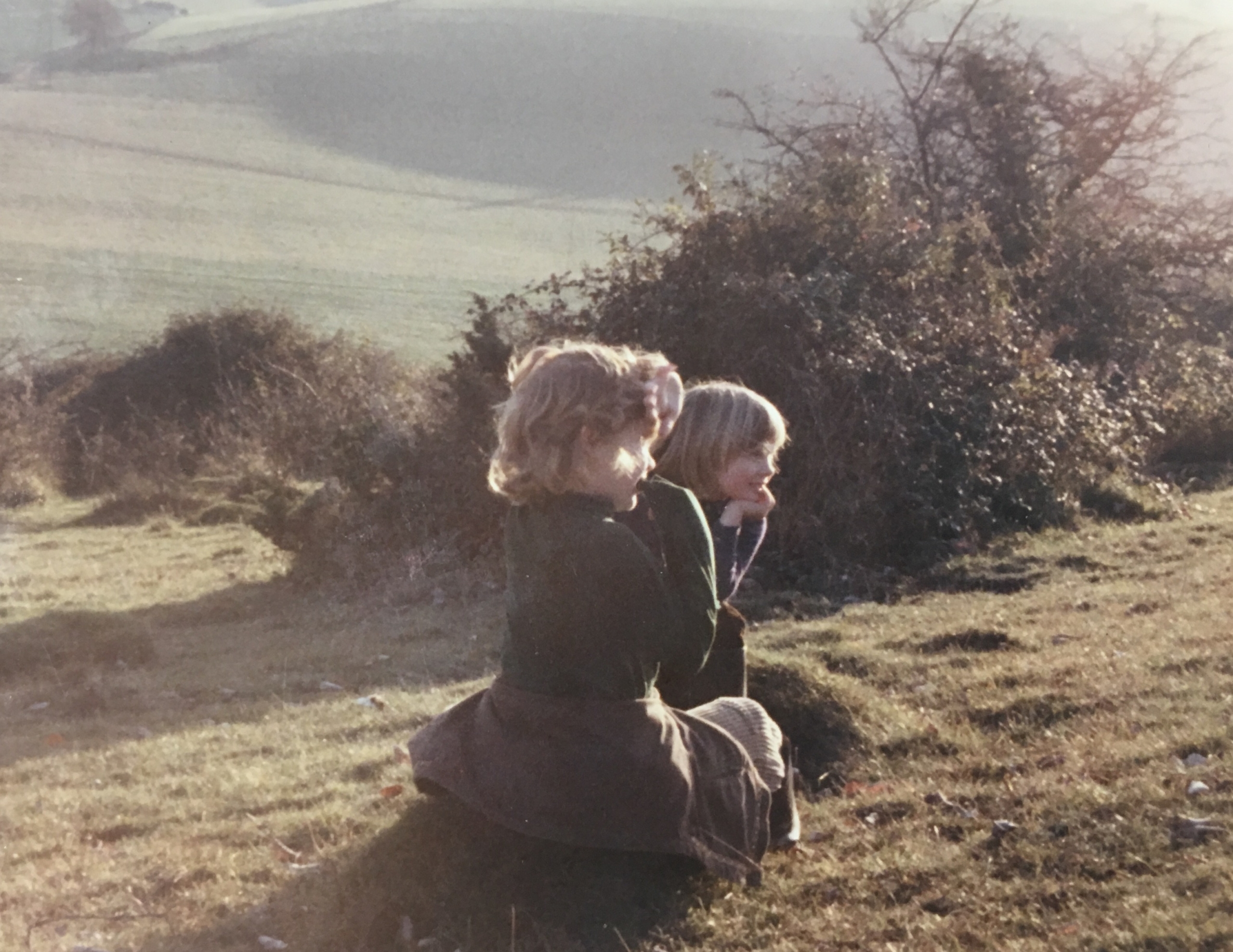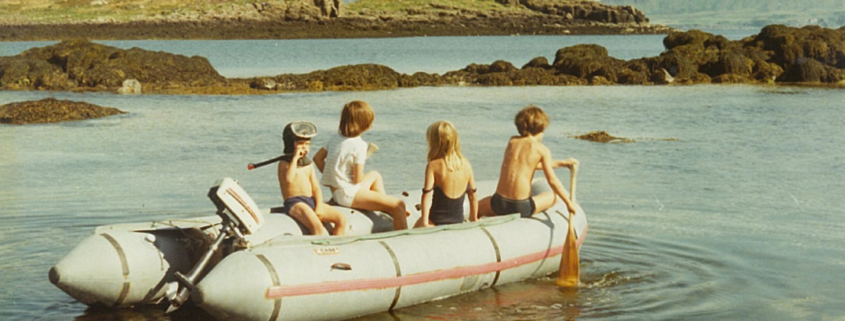The Planet We Share – NSSM2020
Guest Post by Cressida Cowell

I am so happy that The Planet We Share is the theme of this year’s National Share a Story month, because nature and the outside world is a topic I feel very passionately about. Point 10 on my Waterstones Children’s Laureate Charter is that every child has the right to have a planet to read on. When I was a child, there was a great deal of freedom to explore the outdoors without adults, which was not only very exciting, but gave me ideas for stories.
Here is a photo of me, my brother and sister and a friend, going off in a boat by ourselves. We’re not very old: in fact my little brother is about six, and he’s wearing DIVING equipment when he couldn’t even really swim very well… His method of diving for crabs was to hold onto a large stone, fall to the bottom of the harbor, pick up a crab, drop the stone and rise to the surface. In retrospect it sounds dangerous, but at the time it was enormous fun. Remember when you look at this photo that an adult must have been taking it, standing on the shore and waving us off. They definitely weren’t worried.

How to Train Your Dragon and The Wizards of Once are hugely inspired by nature. I spent a great deal of time as a child on a tiny, uninhabited island off the west coast of Scotland. The island had no roads, houses or electricity, just a storm-blown, windy wilderness of sea-birds and heather. We would be dropped off on the island by a local boatman and picked up again weeks later. In those days there were no mobile phones, so we had absolutely no way of contacting the outside world during that time if something went wrong.
The house was lit by candles, and there was no telephone or television, so I spent a lot of time drawing and writing stories. In the evening, my father told us tales of the Vikings who invaded this island twelve hundred years before, of the quarrelsome Tribes who fought and of the legends of dragons who were supposed to live in the caves in the cliffs. That was when I first started writing stories about dragons and Vikings, way back when I was nine or ten years old.
But you don’t need to go to an uninhabited island to find wild ideas for stories. The Wizards of Once series was inspired by the English countryside near my grandmother’s house. I used to play on the top of an iron age hill fort called ‘the Trundle’. You could see for miles and miles. It made you wonder: who were the people who lived here, long ago? What were their lost histories? It was easy to believe that this hill had an enchantment about it. Intriguing, eerie, exciting, and beautiful all at the same time.

Here is another photo of me and a friend on what we called ‘Fairy Hill’. The hill was covered with these strange grassy mounds, about the size of molehills. The adults had no idea what they were, and that is always exciting, when they realise that there are things that exist in the world that not even the adults know what they are. So I filled in the blanks for myself, and decided they must be burial mounds for fairies.
One of the many reasons writing for children is such an energising and enlightening experience is how much you have to learn looking at the world through the cool clear eyes of a child. Adults can get confused by trivialities. Children are focussed on the essentials. So children know that the one of the most important problems facing us all are the environmental challenges in the world. And while adults often give up when faced with an impossible problem, that doesn’t bother children: their belief in magic and the impossible just might make it happen. It doesn’t surprise me at all that the current global, coordinated action in this area is being led by a child, Greta Thunberg, and that the climate change marches are being taken up by children. ‘The Planet We Share’ is also a wonderful theme because it emphasises the connection we have to each other, and the planet itself. Our actions affect other people, and the planet. The wellbeing of the planet affects us. Nature links us to our past and our stories, and gives us new ones. What do dragons symbolise in How to Train Your Dragon? I wrote them to represent the struggle we have with trying to tame nature, and the balance we must find, for all of us to live together.





Leave a Reply
Want to join the discussion?Feel free to contribute!